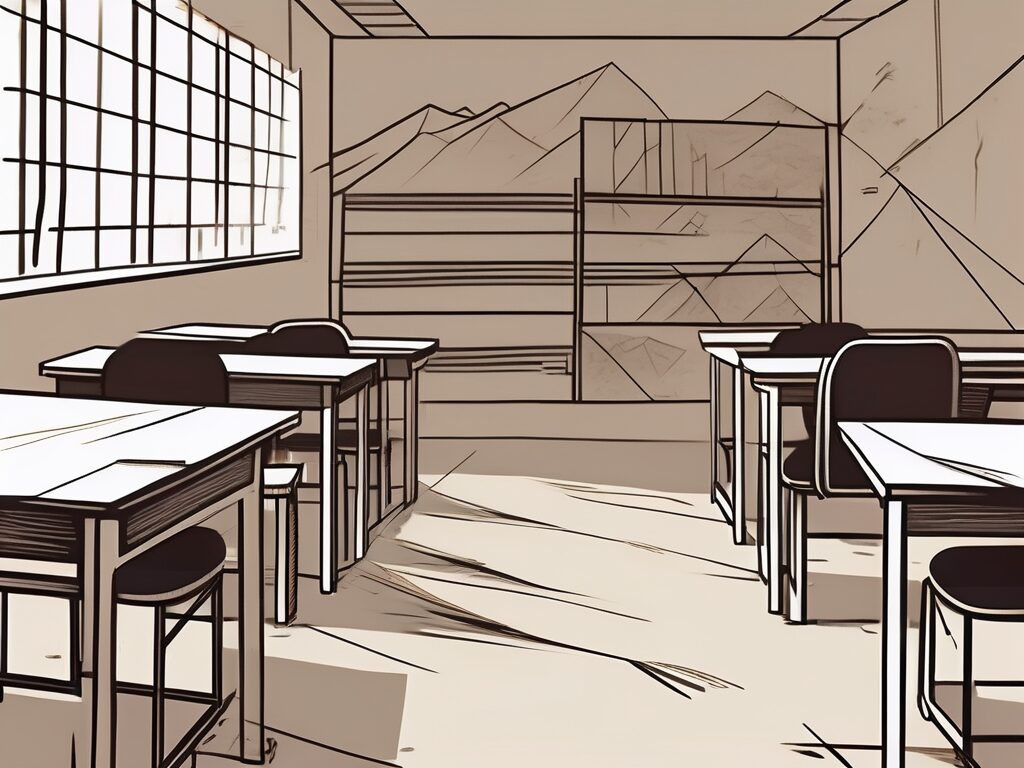Education in China is a topic that has been under constant scrutiny and discussion. With a population of over 1.4 billion people, the education system in China is one of the largest in the world. However, despite the country’s significant strides in improving its education system, there are still numerous challenges that individuals with a Master’s in Education face when navigating this vast landscape. In this blog post, we will delve into four of these challenges, exploring their roots and potential solutions.
Challenge 1: The Urban-Rural Education Gap
The disparity in the quality of education between urban and rural areas in China is one of the most pressing issues faced by educators. This gap is largely due to the unequal distribution of resources, with urban schools often having access to better facilities, more experienced teachers, and a wider range of extracurricular activities.
For those with a Master’s in Education, this disparity presents a significant challenge. It can be difficult to implement effective teaching strategies when the resources available are limited. Moreover, the lack of exposure to different teaching methodologies in rural areas can also hinder the professional development of educators.
Possible Solutions
One potential solution to this issue is to increase investment in rural education. This could involve improving school facilities, providing additional training for teachers, and introducing more diverse learning opportunities for students. Additionally, leveraging technology to deliver quality education in rural areas could also help bridge this gap.
Challenge 2: High-Stakes Testing
The Chinese education system is heavily reliant on high-stakes testing, particularly the Gaokao, which is the national college entrance examination. This exam is often seen as the determining factor for a student’s future, putting immense pressure on both students and teachers.
For educators with a Master’s in Education, this focus on testing can be problematic. It can limit their ability to implement creative and engaging teaching methods, as the primary focus is often on preparing students for the exam. Furthermore, this pressure can also lead to high levels of stress among students, which can negatively impact their mental health and overall well-being.
Possible Solutions
One way to address this issue is to shift the focus from high-stakes testing to a more holistic approach to education. This could involve placing greater emphasis on developing students’ critical thinking skills, creativity, and emotional intelligence. Additionally, providing support for students’ mental health could also help alleviate the pressure associated with these exams.
Challenge 3: Lack of Inclusive Education
Inclusive education, which involves ensuring that all students, regardless of their abilities or backgrounds, have access to quality education, is another area where China faces challenges. Despite some progress, there is still a lack of adequate support for students with special educational needs.
For educators with a Master’s in Education, this lack of inclusivity can be a significant obstacle. It can limit their ability to provide effective teaching and support for all students, particularly those with special educational needs. Furthermore, the lack of resources and training in this area can also hinder their professional development.
Possible Solutions
Improving inclusive education in China could involve providing additional training for teachers in special education, increasing funding for special education programs, and implementing policies that promote inclusivity in schools. Additionally, raising awareness about the importance of inclusive education could also help drive change in this area.
Challenge 4: The Influence of Traditional Teaching Methods
Traditional teaching methods, which often involve rote learning and teacher-centred instruction, are still prevalent in many Chinese schools. While these methods can be effective for certain subjects, they can also limit students’ ability to think critically and creatively.
For those with a Master’s in Education, this reliance on traditional teaching methods can be a challenge. It can limit their ability to implement innovative teaching strategies and hinder their efforts to foster a more engaging and interactive learning environment.
Possible Solutions
Addressing this issue could involve providing additional training for teachers in modern teaching methodologies, promoting a more student-centred approach to learning, and encouraging the use of technology in the classroom. Furthermore, changing societal attitudes towards education and the role of the teacher could also help drive change in this area.
In conclusion, while there are certainly challenges associated with education in China, particularly for those with a Master’s in Education, there are also numerous opportunities for improvement. By addressing these issues head-on and implementing effective solutions, it is possible to create a more equitable and inclusive education system that benefits all students.
Overcome Education Barriers with The IQTS at UWE
If you’re facing the challenges outlined in this article and are looking to enhance your professional development in education, The International Qualified Teacher Status (iQTS) programme at UWE is your next step. With the iQTS, you can increase your chances of meeting international school qualification requirements, boost your career progression, connect with a global community of educators, and gain a comprehensive understanding of international curricula. Embrace the opportunity to balance your career advancement with flexible online study options. Make Your Next Step towards a transformative educational journey with the iQTS programme.

